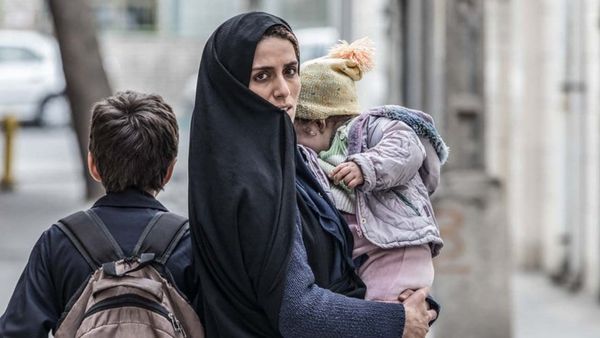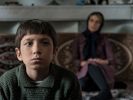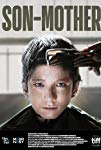Eye For Film >> Movies >> Son-Mother (2019) Film Review
Son-Mother
Reviewed by: Jennie Kermode

The difficulties created when a deeply religious culture clashes with a state tat doesn’t readily accommodate the situation it creates are writ large in Mohraz Mohammadi’s second film. Son-Mother hinges on a simple but apparently irresolvable situation. Widow Leila (Raha Kodayari) is struggling to provide for her 12-year-old son Amir (Mahan Nasiri) and her infant daughter. She has found solace in her closeness to bus driver Kazem (Reha Behboodi), who wants her to marry him – a situation that would enable him to take her into his home and support her properly, instead of just slipping her bits of money when he can and having her colleagues and neighbours think she’s a prostitute. But Kazem has a daughter and tradition dictates that, because of this, he cannot let Amir live with him. To do so would be to expose his child to public humiliation and ruin her future marriage prospects. So Leila is faced with an awful choice.
Told in two parts, the first focused on Leila’s experience and the second on Amir’s, the film explores the inherent difficulties of coping as a single mother in Iran and the lack of adequate state support for women in this position, as well as looking at the way ideas about women impact everyone’s lives, regardless of their sex. Many of the difficulties Leila faces – being late to work because she has to get her kids to school and daycare first, trying to find a balance between bringing in money and caring for her daughter when she’s sick – will be familiar to viewers all around the world, and this helps to make the film accessible to those getting to grips with the specific challenges thrown up by Iranian culture for the first time.

Helping to explain these is Bibi (Maryam Boubani), an older neighbour who is anxious for the proposed marriage to take place and convinced that there must be a solution. Kazem’s daughter will likely be married within two years. Couldn’t Amir go away for just a little while? isn’t there anybody he could stay with? Leila doesn’t want his education to be disrupted. She also doesn’t want him to have to endure that sense of abandonment. Lying on his side on their shared mattress, facing away from her, he cries himself to sleep.
All this is just the beginning of a film that has further avenues to explore and a lot to say about the ease with which children can be cut off from opportunities for growth and learning within a system whose awkward fit with traditional expectations is simply not discussed. As in many parts of the world, what social safety net there is simply doesn’t work for people with complex problems. Individual expressions of sympathy and kindness are to be found everywhere but are simply not adequate. Nobody with power really seems willing to put themselves out for the sake of one boy whose vulnerability is highlighted in one particular scene that deals with issues rarely hinted at in Iranian cinema.
Nasiri is remarkable as the boy at the centre of it all, a child who is withdrawing into himself in the absence of reliable, consistent adult protection. Over he course of the film we see him transform from a confident, outward-looking child into a ghost of himself, his face pressed against a window, looking out at a world that seems unwilling to make room for him. Khodayari is also strong in a polar opposite role which sees her wrestle with a storm of conflicting emotions as he simply fades, his few desperate efforts to reach out only reinforcing his sense of despair. But what Mohammadi and writer Mohammad Rasoulof are really interested in is the bond that unites the two, and there’s a suggestion that the strain placed on this bond symbolises a much deeper malaise in Iranian society.
There is little here in the way of hope – just a reminder of what love means whilst we have it, before falling snow occludes its last traces.
Reviewed on: 04 Mar 2020















